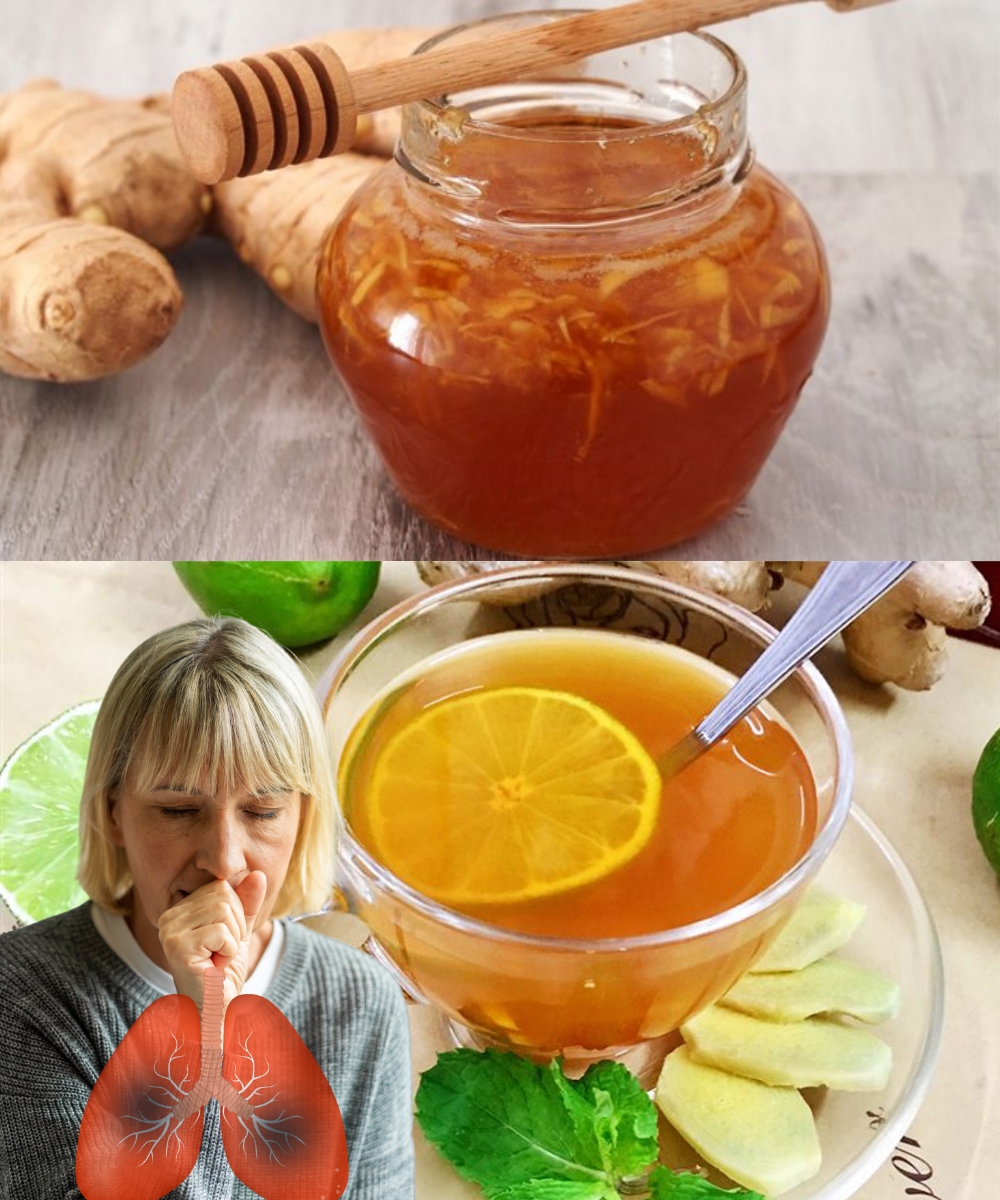ADVERTISEMENT
**Honey Lemon Ginger Remedy: A Natural Solution for Cough Relief**
Coughing can be one of the most annoying and disruptive symptoms when you’re dealing with a cold, flu, or other respiratory condition. While over-the-counter cough syrups and medicines can offer relief, many people are turning to natural remedies that have been passed down through generations for their soothing effects. Among these, the combination of honey, lemon, and ginger stands out as a powerful, all-natural solution for easing coughs and soothing sore throats.
This article will explore the benefits of each of these ingredients—honey, lemon, and ginger—and how they work synergistically to help alleviate cough symptoms. We’ll dive into the science behind why this remedy is effective, how to prepare it, and how to incorporate it into your daily routine when you’re feeling under the weather. Additionally, we’ll provide helpful tips and variations of the recipe to maximize its potential benefits.
—
### **Understanding the Remedy: Why Honey, Lemon, and Ginger?**
Before diving into the preparation of the remedy itself, it’s important to understand why honey, lemon, and ginger are so effective at fighting coughs. Each ingredient has its own set of therapeutic properties that can help ease throat irritation, reduce inflammation, and boost the immune system. When combined, they form a potent natural remedy that can provide relief without the need for harsh chemicals or artificial ingredients.
#### **Honey: The Natural Soother**
Honey has been used for centuries not only for its sweet taste but also for its medicinal properties. It’s well known for its ability to soothe sore throats, suppress coughs, and promote healing. Honey contains natural antioxidants, antibacterial, and anti-inflammatory properties that can help to alleviate the irritation caused by persistent coughing.
The primary benefit of honey for a cough comes from its ability to coat the throat. This coating effect forms a protective layer over the mucous membranes, reducing irritation and providing relief from the scratching and tickling sensation that often accompanies a cough. Moreover, honey has been shown to help reduce mucus production and prevent infection by creating an inhospitable environment for harmful bacteria.
Scientific studies have supported the efficacy of honey as a cough remedy. In one study, children who were given honey before bedtime showed significant improvements in their cough symptoms compared to those given a placebo. Honey has been recognized by medical professionals as a safe, effective, and natural alternative to over-the-counter cough medications for children above the age of 1.
#### **Lemon: The Immunity Booster**
Lemon is another powerhouse ingredient when it comes to fighting coughs. Rich in vitamin C, lemon is a natural immune system booster that can help your body combat infections more effectively. In addition to providing a dose of vitamin C, lemon also has antimicrobial properties that help to fight off bacteria and viruses responsible for colds and other respiratory illnesses.
The acidity of lemon helps to break down mucus and phlegm in the respiratory tract, making it easier to expel and alleviating chest congestion. Lemon also promotes hydration, which is crucial when you’re sick. Staying hydrated helps thin mucus, making it easier to clear from the throat and lungs. Moreover, lemon is a natural astringent that can help tighten tissues in the throat, reducing inflammation and providing relief from sore throats.
### **Ginger: The Anti-Inflammatory Powerhouse**
Ginger has been used for centuries in traditional medicine to treat a variety of ailments, including digestive issues, nausea, and pain. When it comes to coughing, ginger is a potent anti-inflammatory and antioxidant that can help to soothe the throat and reduce irritation. The active compound in ginger, known as gingerol, is responsible for its healing properties. Gingerol has been shown to have anti-inflammatory effects, helping to reduce swelling and irritation in the throat.
In addition to its anti-inflammatory properties, ginger can help relax the muscles of the airways, making it easier to breathe and lessening the urge to cough. Ginger also contains compounds that may help reduce the severity of symptoms associated with respiratory infections by boosting the immune system and fighting off pathogens.
Several studies have shown that ginger can be effective in treating a variety of respiratory issues, including coughing, colds, and sore throats. Ginger is also known to stimulate the production of saliva, which helps to keep the throat moist and prevents further irritation.
For Complete Cooking STEPS Please Head On Over To Next Page Or Open button (>) and don’t forget to SHARE with your Facebook friends
